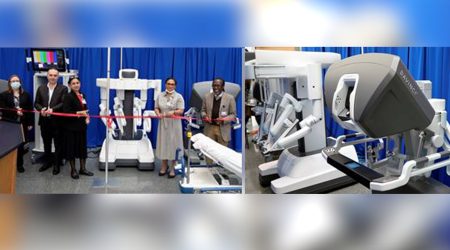USCIS on April 29 updated the ‘Frequently Asked Questions’ on the USCIS Fee Rule to help certain employment-based petitioners understand how to submit the correct required fees.
New FAQ:
Q. How can I make sure that my filing is not rejected at intake for incorrect fees?
A. At intake, we determine whether the payment you submitted matches the correct fees due. If you do not submit the correct fee, we must reject your form, even if you have submitted an overpayment.
If you are submitting one of the following forms, the required fees depend on how you answer the form’s questions about your status as a nonprofit or small employer.
Form I-129, Petition for a Nonimmigrant Worker:
Part 1, Question 6 asks “Are you a nonprofit organized as tax exempt or a governmental research organization?” If you answer “Yes,” then you must submit the proper payment for a nonprofit, and not for a small employer.
Part 5, Question 15 asks “Do you currently employ a total of 25 or fewer full-time equivalent employees in the United States, including all affiliates or subsidiaries of this company/organization?” If you answer “Yes,” then you must submit the proper payment for a small employer (unless you checked “Yes” in Part 1, Question 6 for nonprofits, as described above).
In addition, Part 5, Question 14 asks for your “Current Number of Employees in the United States.” If you check “Yes” to Part 5, Question 15, and you answer Question 14 with a number greater than 25, then your supporting documentation should demonstrate how you calculated the number of full-time equivalent employees as 25 or fewer. If we cannot determine the number of full-time equivalent employees, we may reject your petition.
Form I-129CW, Petition for a CNMI-Only Nonimmigrant Transitional Worker:
Part 1, Question 8 asks “Are you a nonprofit organized as tax exempt or a governmental research organization?” If you answer “Yes,” then you must submit the proper payment for a nonprofit, and not for a small employer.
Part 5, Question 14 asks “Do you currently employ a total of 25 or fewer full-time equivalent employees in the United States, including all affiliates or subsidiaries of this company/organization?” If you answer “Yes,” then you must submit the proper payment for a small employer (unless you checked “Yes” in Part 1, Question 8 for nonprofits, as described above).
In addition, Part 5, Question 13 asks for your “Current Number of Employees in the United States.” If you check “Yes” to Part 5, Question 14, and you answer Question 13 with a number greater than 25, then your supporting documentation should demonstrate how you calculated the number of full-time equivalent employees as 25 or fewer. If we cannot determine the number of full-time equivalent employees, we may reject your petition.
Form I-140, Immigrant Petition for Alien Workers:
Part 1, Question 5 asks “Are you a nonprofit organized as tax exempt or a governmental research organization?” If you answer “Yes,” then you must submit the proper payment for a nonprofit, and not for a small employer.
Part 1, Question 6 asks “Do you currently employ a total of 25 or fewer full-time equivalent employees in the United States, including all affiliates or subsidiaries of this company/organization?” If you answer “Yes,” then you must submit the proper payment for a small employer (unless you checked “Yes” in Part 1, Question 5 for nonprofits, as described above).
In addition, Part 5, Question 4 asks for your “Current Number of U.S. Employees.” If you check “Yes” to Part 1, Question 6, and you answer Part 5, Question 4 with a number greater than 25, then your supporting documentation should demonstrate how you calculated the number of full-time equivalent employees as 25 or fewer. If we cannot determine the number of full-time equivalent employees, we may reject your petition.
Existing FAQs:
Q. What is the Asylum Program Fee and who pays it?
A. The Asylum Program Fee ($600) is a new fee paid by employers who file either Form I-129, Petition for a Nonimmigrant Worker; Form I-129CW, Petition for a CNMI-Only Nonimmigrant Transitional Worker; or Form I-140, Immigrant Petition for Alien Worker. This fee helps fund the asylum program. The fee rule includes special discounts for nonprofits and small employers, as described further below.
All the work at USCIS is connected—when we have a more fully funded corps of asylum officers, our non-asylum officers can concentrate more exclusively on adjudicating cases from employers and other filers, bringing down processing times for everyone.
Q. How do I pay the Asylum Program Fee? Is there a separate form or paperwork?
A. Payment of the Asylum Program Fee does not require a separate form or paperwork. If you pay by check or money order, you should submit the Asylum Program Fee separately. If you pay online by credit card, you may use one credit card form for all fees, including the Asylum Program fee.
Q. If separate fees are required when I file multiple forms together, may I pay with one check?
A. No. We are transitioning to electronically processing immigration benefit requests, which requires us to use multiple systems to process multi-form submissions. We may reject your entire package if you submit a single, combined payment for multiple forms.
Q. If I file forms online such as an H-1B petition (Form I-129) on or after April 1, 2024, may I submit one credit card form that includes the total filing fee amount (Form I-129 fee, anti-fraud fee, American Competitiveness and Workforce Improvement Act fee, Asylum Program Fee, and premium processing filing fee if applicable)?
A. Yes. You may submit one credit card form for the entire fee amount, including the form fee and additional fees.
Q. How does the Asylum Program Fee apply when submitting multiple petitions due to the limit of 25 named beneficiaries on each petition?
A. The petitioning employer must pay the appropriate Asylum Program Fee for each Form I-129 filed, unless they qualify for the nonprofit exemption discussed further below.
Q. What is a “full-time equivalent employee” in determining whether a petitioner qualifies for the small-employer discounts to the Form I-129 fee and Asylum Program Fee?
A. Generally, the number of full-time equivalent employees equals the number of full-time employees plus the number of part-time employees aggregated to full-time equivalents at the time of filing. The IRS defines an employee as an individual who receives “wages,” with applicable taxes deducted, along with Social Security and unemployment deductions, and who receives a W-2 reporting their income.
Q. Do the beneficiaries on the petition count as full-time equivalent employees?
A. The beneficiary of a petition does not count as an employee unless they are currently working for the petitioner as an employee at the time of filing.
Q. What proof is needed to show the number of full-time equivalent employees?
A. The instructions for Forms I-129 and I-140 state that possible evidence includes a copy of the petitioner’s most recent IRS Form 941, Employer’s Quarterly Federal Return; or IRS Form 943, Employer’ Annual Tax Return for Agricultural Workers. However, petitioners may submit any relevant evidence that shows the number of full-time equivalent employees by a preponderance of the evidence.
Q. Because the IRS Form 941 includes salary information, can petitioners redact this information for privacy reasons?
A. Yes. Such redaction is permissible when the evidence is only to support eligibility for a reduced fee and the redacted information is not otherwise relevant to the adjudication.












